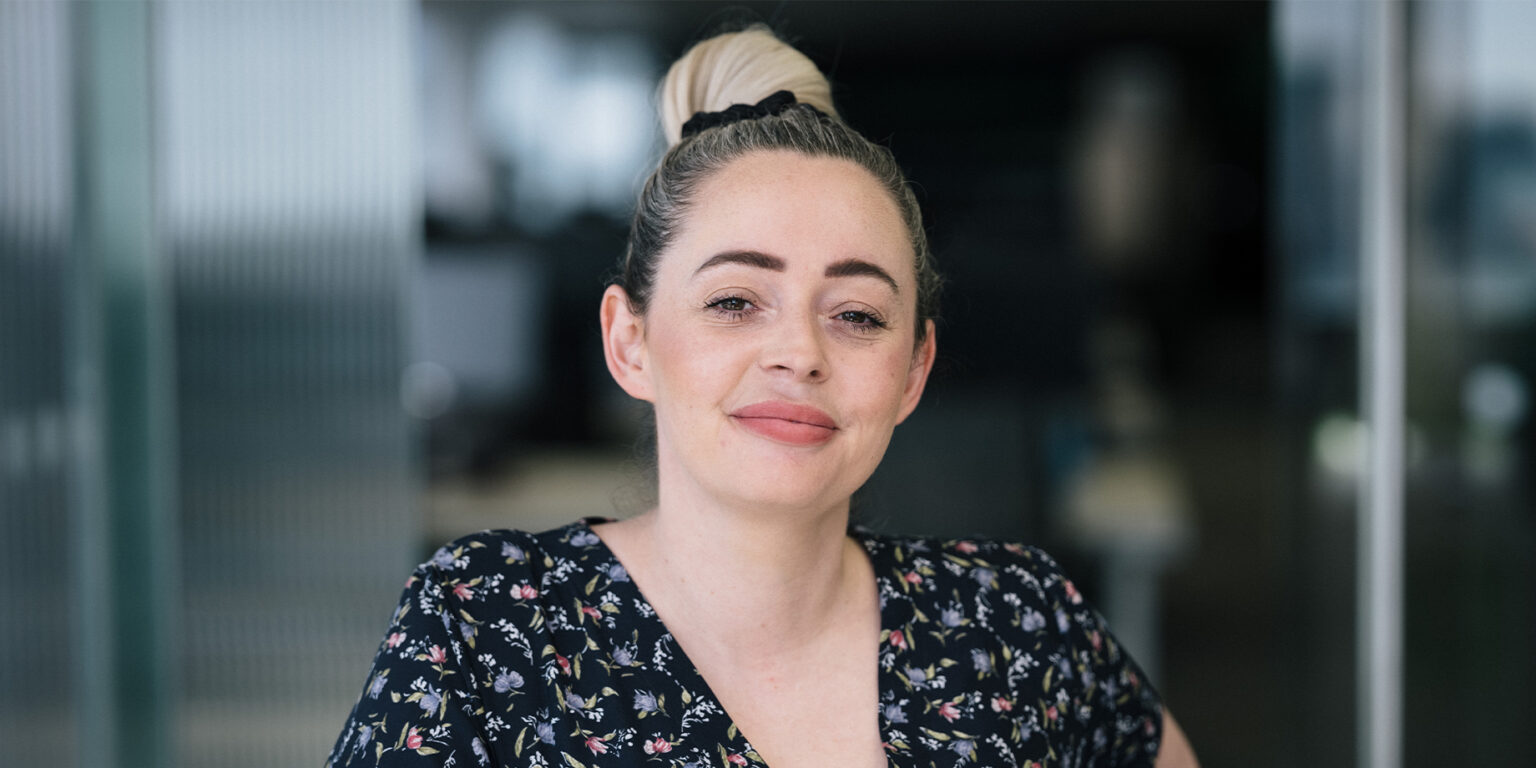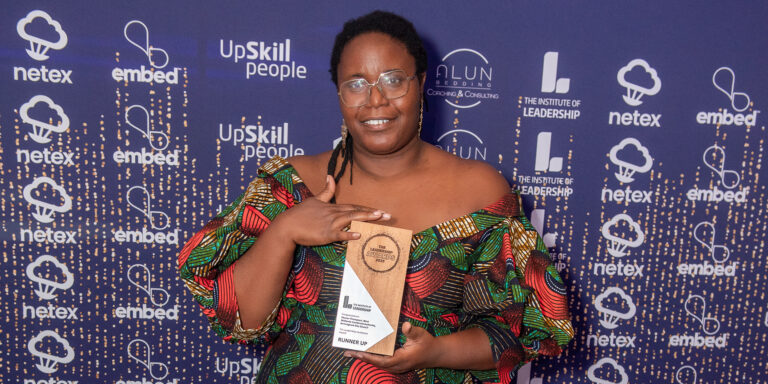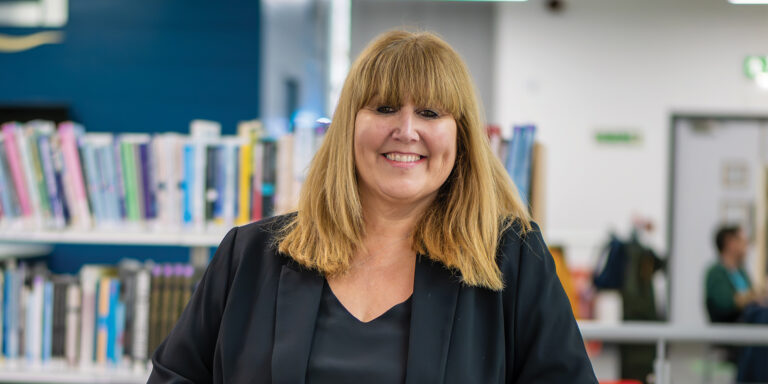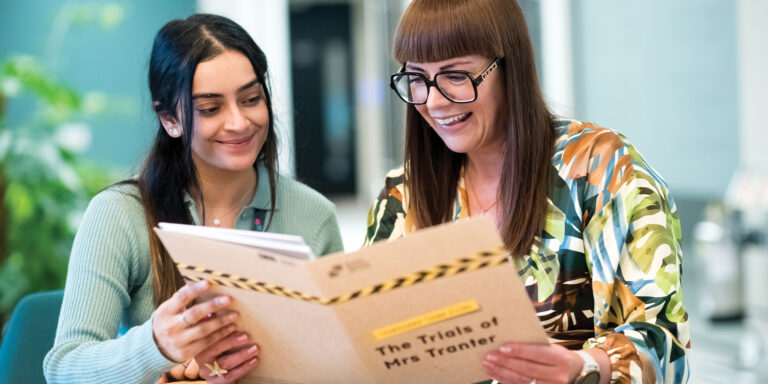“I spent about 17 years fighting for the underdog in a lot of different capacities before setting up Radical,” Emma Freivogel tells me as we sit down to chat. One of her roles was working for an organisation that supports women coming out of prison to reintegrate into the community. In two years, she and her team helped 400 women to find work. But a few things didn’t sit right.
She became acutely aware that most of the women were going into jobs they didn’t really want and that other British people didn’t want to do – jobs that didn’t pay a living wage, certainly not in London.
“I met loads of women who had come from corporate backgrounds and who had university degrees, but who had done things under duress – usually because of the men they were involved with – that landed them in prison,” Freivogel says. “They were very capable, but we weren’t brokering opportunities for them. The model, put simply, lacked aspiration.”
Another thing she observed was that the third sector is full of people who are well-meaning and want the best for the communities they’re supporting, but who don’t understand the mechanics of recruitment. “They’ve often not worked in big corporates, therefore they don’t appreciate the different barriers and motivations that hiring managers and HR professionals experience when it comes to recruitment. They don’t work at pace; there’s no sense of urgency. They’re not properly vetting and qualifying the candidate, the vacancy or the employer. And the people we work with need so much more out of an employer than ‘just enough’.”
Freivogel also wanted to expand the support to include men coming out of prison – because, as she says, this is where the bigger issue lies: in the UK, the female prison population is less than 4,000, whereas male inmates number closer to 90,000.
She is not one to mince her words. She told the newly appointed CEO her plan was to set up her own charity, doing similar work, but doing it differently and for more people. That wasn’t well received by the business and she was “basically sacked on the spot”.
Feeling sorry for herself, she called her mother, who lovingly told her to stop moping and get out there to do this thing she was obviously meant to do, and who lent her some money to get it off the ground – Radical was born.
Making changes
Two businesses operate under the Radical brand. “Radical Recruit is a charity that places people into jobs,” Freivogel explains. In essence, it is a social recruitment consultancy that works with people from marginalised communities who are underrepresented in the jobs market – for example, people who come from a protected class, such as women and disabled people, or who have had adverse life experiences, such as homelessness, or who have had contact with the criminal justice or care sectors. The charity also works with people who have experienced domestic abuse, or are single parents.
“We set up B-Radical to offer support to corporates [to] turn their diversity, corporate social responsibility and social value rhetoric into meaningful action”
Then there is B-Radical, which was, Freivogel says, born out of necessity. “We became painfully aware that there is no shortage of employers that say they want to do the right thing and recruit radically. There’s no shortage of ‘Radicals’ [a term Freivogel uses to describe her clients – and anyone who has faced and overcome adversity] to place into those jobs, but employers are simply not ready – they are not empathising with the barriers our candidates face, which could be anything from financial hardship to domestic violence, and everything in between. We set up B-Radical to offer support to corporates in the form of training and consultancy – turning their diversity, corporate social responsibility and social value rhetoric into meaningful action.”
At the heart of B-Radical is a commitment to making the corporate social value agenda more than just a tick-box exercise.
“The government passes on the responsibility for making the world a better and fairer place to those who bid for government contracts,” Freivogel says. “Then the big players delegate the responsibility down even further until you get to the facilities company that’s providing your corporate cleaning and hygiene services. To bid for contracts such as these, you have to demonstrate social value, which is basically the value you deliver in addition to what you’re contracted to do that’s good for people, planet or place.”
This is where B-Radical steps in. It helps organisations embed diversity, equity and inclusion into their operations in ways that are measurable, commercially smart and aligned with social value frameworks. “We don’t just advise, we deliver,” Freivogel says. “That means real people into real jobs, with recruitment and retention outcomes that outperform the market. More than 90% of the people we place are still in work six months later.”
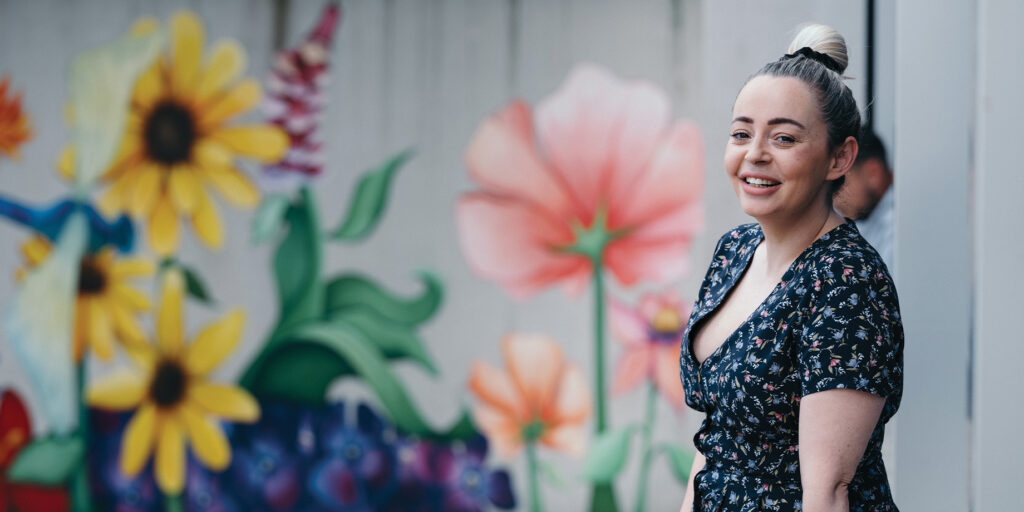
Fill your cup
As a leader of an organisation that is championing some of society’s most vulnerable people in a world full of systems, structures and attitudes that are stacked against them, Freivogel has more than her fair share of challenging days. Radical becomes a lifeline to those it supports, and the team are often involved in the details of people’s lives that go way beyond a job – housing issues, financial worries, mental health crises – often taking messages and calls at times when most of us have switched off from the day job.
“It can be tough,” says Freivogel. “It sounds clichéd, but it is really important to fill your own cup.”
Three years ago, Freivogel burnt out. She says was so tired that she could barely string a sentence together, but she kept showing up because she thought “that’s what good leaders do”. But it got to the point where she had to be signed off work, so she went back to New Zealand to stay with her family to rest and recuperate. “In showing that vulnerability to my team, in saying to them, ‘I am broken right now’, they really stepped up. That has been a really proud moment, personally, to see them do that and own it. It’s also been a defining moment for me in my leadership journey. I’m a much better leader now, in the sense of giving them ownership to let them get on and me not try to control everything.”
But learning to let go when it is your company – your baby – is something Freivogel is still working on. Recently, she set up a follow-up meeting with a client – a task one of the Radical partners had said he would do – and he gave her a firm telling off. “I told him it was no big deal – he’s working pro bono on top of his day job, so I just did it myself. But the client said, ‘Em, you’re a female CEO working with a lot of men in corporate leadership. If someone they see as your subordinate doesn’t do something and you step in, especially something like admin that could have waited, you’re reinforcing the very barriers you’re trying to break. Whether you like it or not, that’s how people think.’”
She smiles. “Basically, he was telling me I needed to start acting more like a male CEO. This was a profound moment of male allyship for me. We all need people like that around us – whether we are leaders or not.”
Bringing change
With our time nearly at an end, I ask Freivogel what change would bring about the most benefit for her and the people with whom she works.
“The business community collectively, globally, is the biggest, most powerful community to elicit any change in the way we view Radical people, and treat them and respect them”
“One practical thing that would really help is if all of these ambitions that organisations speak of in terms of ethical business, and diversity and social value, were somehow linked to employee bonuses. If the people at the top – the ones who hold the budgets and make the decisions – need motivating, money will be the driver. If earning your bonus depends on it, you need to clearly show how your work aligns with specific values and KPIs. If that were the norm, the world would look very different and, I suspect, every single one of us would be happier.
“Good businesses can do that. The business community collectively, globally, is the biggest, most powerful community to elicit any change in the way we view Radical people, poor people, and treat them and respect them.
“Broadly speaking, what I’m saying is that the people at the top need to be more able and willing to share the pie.”
Louise Parfitt is the editor of Edge.
This article is a shortened version of the big interview that first appeared in the autumn issue of Edge. You can read the full version here

